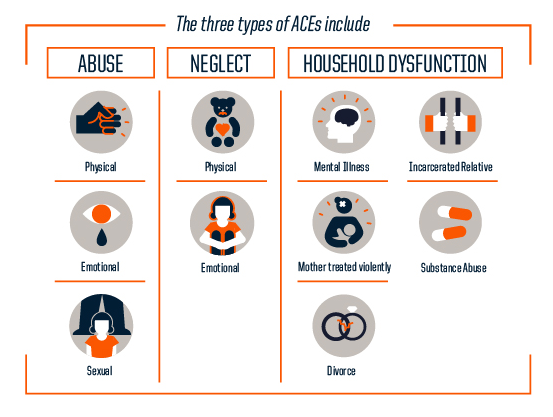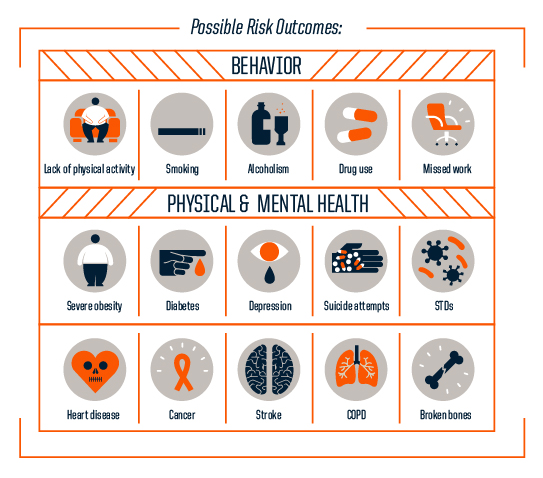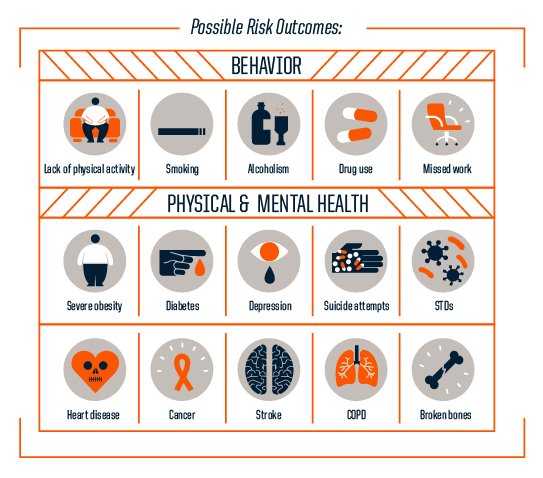It Occurs at Home
Developmental Trauma is a term used in the literature to describe childhood trauma such as chronic abuse, neglect or other harsh adversity in their own homes. When a child is exposed to overwhelming stress and their caregiver does not help reduce this stress, or is the cause of the stress, the child experiences developmental trauma. Most clinicians are familiar with the term Post-Tramatic Stress Disorder (PTSD), but the vast majority of traumatised children will not develop PTSD. Instead, they are at risk for a host of complex emotional, cognitive and physical illnesses that last throughout their lives.

Developmental traumas are also called Adverse Childhood Experiences. These are chronic family traumas such as having a parent with mental illness or substance abuse, losing a parent due to divorce, abandonment or incarceration, witnessing domestic violence, not feeling loved or that the family is close, or not having enough food or clean clothing, as well as direct verbal, physical or sexual abuse. The impact of these traumas has been researched extensively. One such body of evidence comes from a database of over fifteen thousand adults, in a now-famous study known as the Adverse Childhood Events (ACE) study.

Trauma Leads to Lifelong Illness
This study, which was begun in 1995 in California and is still ongoing, explores the association between developmental trauma and physical and mental illnesses. Adults were asked to recall their early life experiences, and assigned an "ACE Score" based on the number of these experiences they endorsed. Adults who endorsed higher numbers of adverse experiences were found to have exponentially higher rates of serious physical health outcomes, high-risk health behaviours, and early illness and mortality. Fascinatingly, these data and data from thousands of other health measures collected since 2010 show that there is a strong dose-response relationship between trauma and poor outcomes. This means that the greater the number of developmental traumas experienced in childhood, the greater the number of illnesses as adults, even after controlling for high-risk health behaviours.

Trauma is Prevalent Across the Population
The ACE data are significant not only for the link between childhood trauma and lifetime poor health, but also because of the population it studied. The majority of the study respondents were Caucasian, middle-class, and had post-secondary education. These data demonstrate that even in relatively enfranchised populations, rates of traumatic exposures for children are remarkably high, with a 15% prevalence of adults reporting an ACE score of 3 or more from their childhoods. In data collected each year since 2010 across 33 states, 20% of adults report an ACE score of 3 or more. These data challenge the idea that trauma occurs only within certain marginalized or "at risk" groups.
Source: www.cdc.gov/ace/prevalence.htm
Image Credit: Robert Wood Johnson Foundation